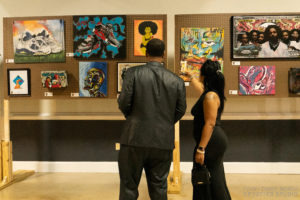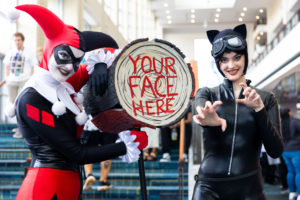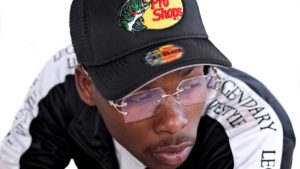Triad Artist John Rushton Is A Modern Day Renaissance Man
INM Traveled To Idlewild Interiors For A Glimpse Of His Latest Work
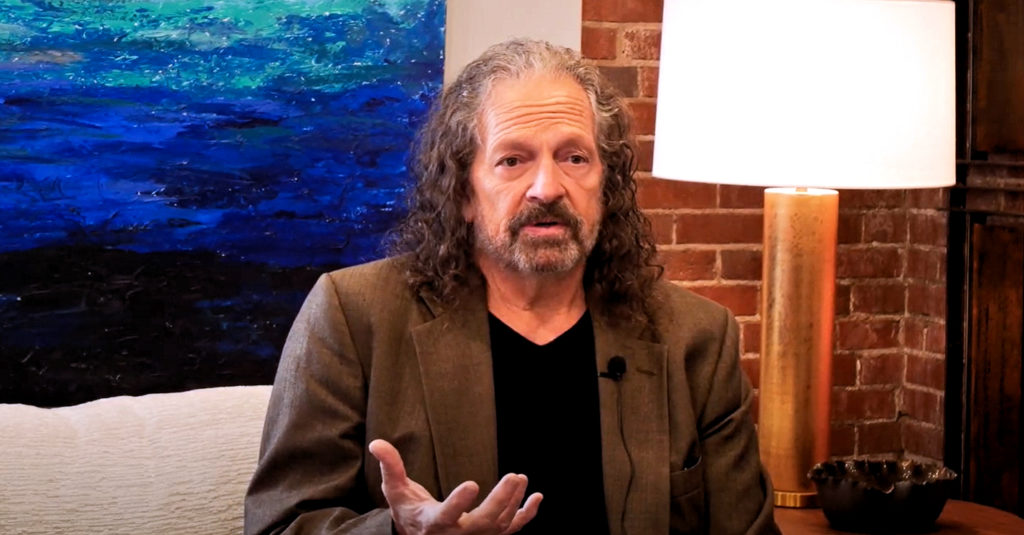
John S. Rushton is an abstract artist, film producer, actor, and former theater director known for Eyeborgs (2009), The Squeeze (1987) and Booth (2005).
Where were you born and what was your childhood like?
I was born in Lynchburg, Virginia. When you’re in the South, even if you lived there for a minute…you’re FROM there. My childhood was really cool. That’s when I actually started being an artist at like 9 or 10 years old. My parents were blue collar. My parents didn’t have a lot of money but they were supportive of anything we wanted to do. If you wanted to be an opera singer they would be like “okay, go do that”. My dad was a military guy (marine corps) so he was a little harder. My mom was really genteel. I just remember us having a lot of fun with animals like dogs and cats around. We grew up near the beach so I kind of grew up to be a beach boy. It’s in my blood. My mom talked me into entering into the Boardwalk Art Show in Virginia Beach at age 10. I was a little chubby 10 year old with a table at the art show and actually sold two of my paintings for 30 bucks. That’s the kind of mom I had. I have a lot to thank her for in my life.
Where have you lived and traveled so far in your career?
I have been all over. West Coast. East Coast. I spent a lot of time in North Carolina. I lived in LA for years as an actor. Lived in New York. Doing films I had to travel a lot. I traveled to Romania on a film project. Paris, France. Some parts of Europe. My family is from Scotland so I got to visit and it was amazing. If you ever go somewhere that you think you’re from, as soon as you hit the land you just feel in your DNA like you belong there. It’s just a really weird feeling.
We made the film Eyeborgs and took that to the Cannes Film Festival on the coast of France in Cannes. It was amazing. As an actor, I heard about that for years and then there I was. A coke is like $20 but it was an incredible experience. You’d walk down the street and there would be Matthew Broderick. Just to be somewhere like that where film is celebrated everywhere you go.
What brought you back to North Carolina from California?
I always liked North Carolina. The film industry started really kicking in and I had several friends that were working on film projects here that they wanted me to be a part of. My parents lived here and they started getting to the age where health was an issue. So it was a good career move and also a good family move. I loved L.A. too but I really liked North Carolina.
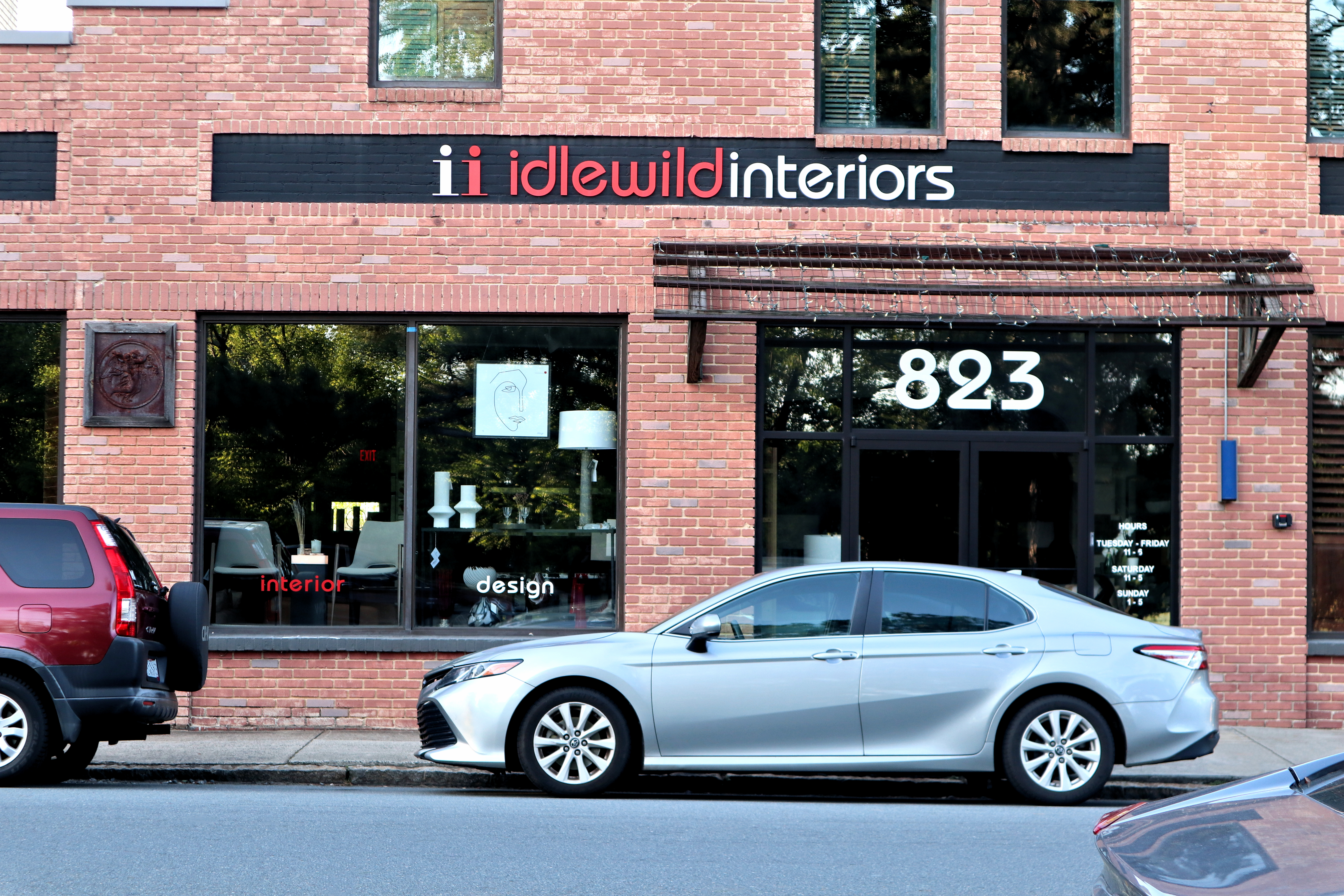
How do you find time to still audition and work as an actor?
It’s a little easier as I have gotten older. One of the great things about having a little age is you just don’t care as much. I used to get so crazy about auditions and freak out because everything was hanging on them. Now I just do them because I want to. I think auditions now are better and worse. The better part is most of the auditions now are online so you don’t have to fly to New York to do an audition. The other side of that is I really like auditions because I like people to meet me. I like them to experience the whole person in an audition not just a face on a camera. For most of the professional Broadway and film roles, they’ll do the first audition online. And then if they really want you, they’ll ask you to come up and audition so it’s more of a two part process now.
I have always been a multi-tasker. I don’t think it’s really about doing different things as much you realizing as you get older that it all comes from a place of passion. I’m a very passionate person for the arts and maybe foolishly, I just wanted to do them all.
When did you discover that you had a love for abstract art?
I have always been drawn to abstract art. When I was a kid, I just liked art for the reasons that children like art. It’s one of the first ways you can express yourself besides talking. And then just living this life with all the crazy stuff and great things that have happened to me. Kids. Marriage. Success. Failure. All the things that I’ve been through. Acting. Directing. Producing. Writing. Now it all goes into the art. I think I took the best arc I could have taken with my art because now all those things go on canvas. The thing I like most about abstract art is that it is more emotion driven. Landscape and portraits are more reality driven. You see something and try to replicate it so that people look at that and say, “Oh. That’s Pilot Mountain (or whatever)”. Abstract is you feel these amazing things and then you interpret them. I use a lot of music when I paint so through all those things I just interpret that and it comes out on the canvas. With abstract art, each person feels something different and that’s what I love about it.
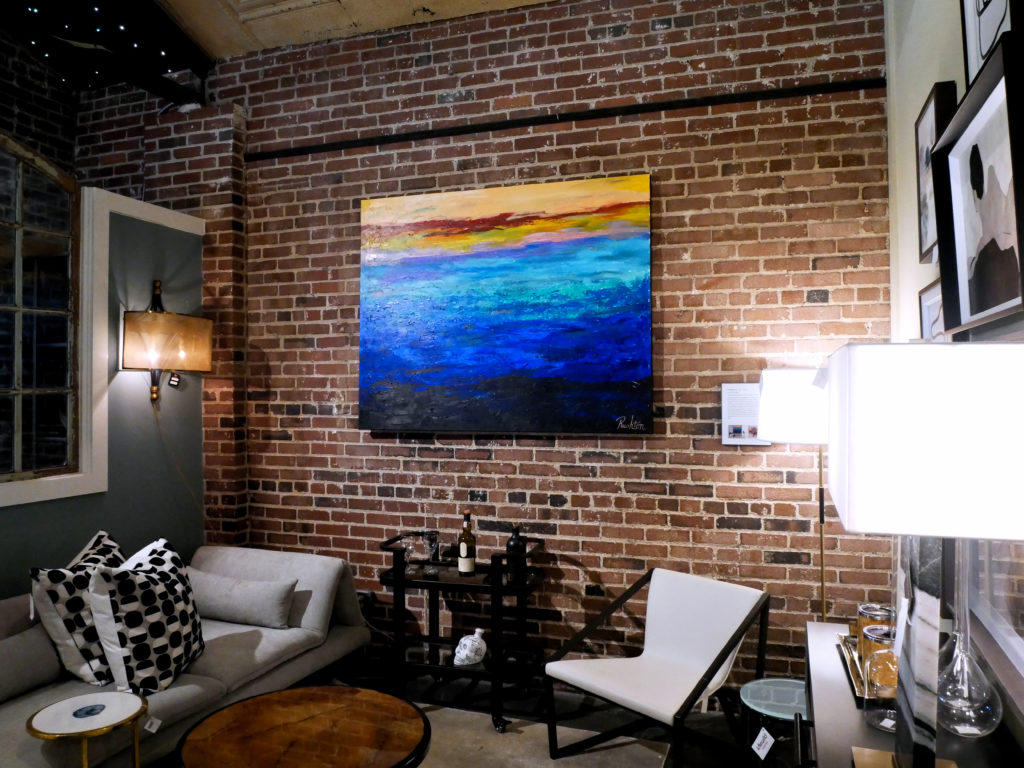
What should people expect from your art commissions?
That’s my favorite thing to do. Once we settle size and price and everything, I’ll ask you about the colors you are interested in and what music you like listening to. I’ll also ask about the music you want me to listen to while I make the piece so that we’re on the journey together. Instead of just making something that fits in a space, it’s more like painting something that fits in your head. We’ll always have that relationship for the rest of time. Once I make it for you, you’ll have the piece that we did together as opposed to just something that I painted and hoped you liked. That’s why commissions are one of my favorite things. We can have that shared experience and every time you look at that piece, you’ll know it is an investment in your own emotional background which is a little different than just a piece of art.
Why is community building important for artists?
I think community building is important for any artist whether you’re a visual artist or an actor. The community becomes a part of what you do. They become your support system and the people you look to. Artists also have a way of enhancing the fabric of a community. I think they always have since the dawn of time. If you go back to the earliest communities on earth, the first thing they talk about is the art, the music, the cave drawings, whatever. The feelings that people got from the community whether good or bad come out in the art. The songs of the oppressed. The poetry of the inspired people. All of that comes from the community when you think about it. Most of my artistic expression comes from the people around me, the things that I have done and the people that influenced my life. It’s all one thing really.
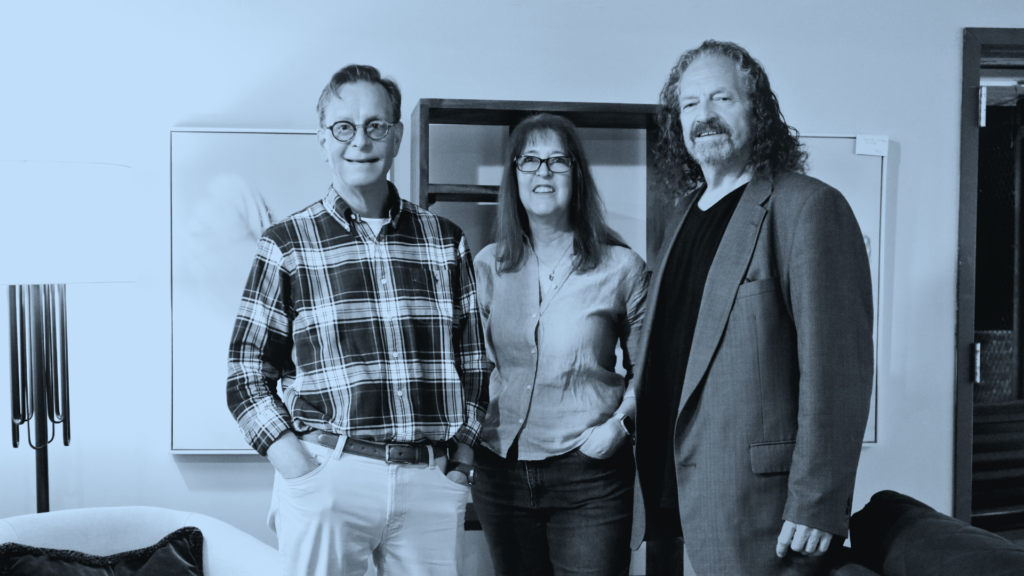
What do you enjoy most about High Point Market?
High Point Market was a lot more fun than I thought it would be. It’s a lot of work. It’s an amazing thing that happens in our backyard. Until you’re a part of it, you just can’t understand it. You could literally be around it every day and not get it until you’re in the middle of it. It turns a town into the most important place on earth two times per year. For artists, designers and furniture makers, it is the most important two weeks of their lives. It’s kind of like a combination of Paris, New York and High Point all in one place. You’ll see the craziest fashions.
People really get into it and dress up. Other people walk around in shorts and flip flops. It’s just this crazy experience of food, drink and design inspiration. Everybody is trying to put their best foot forward. Everywhere you walk, you’re looking at the best thing that people do. Whether it’s the smallest little guy that makes a couple of pieces of furniture per month. There are some places there that have whole floors and buy thousands and thousands of pieces of furniture. And it’s all together from antiques to couches that cost $50,000. You’ll never see any place like it. There are literally buildings that are 7,8, 11 story buildings that don’t do anything except for those two weeks every year.
What advice do you have for a first time attendee?
It’s really daunting to go there. If you can go just as a guest, that’s the best thing to do. When you go as a guest, you really just have a lot of fun. Almost every place has free drinks and food. At least that way you can go around and see what it’s like. I think there are 157 or so buildings that participate in Market in Downtown High Point. It’s virtually impossible to go to everything. You don’t have enough time. The main building (the IHFC building) is 11 floors I think, and you could spend the whole Market in that building and not see everything. It’s a little like the World’s Fair where you have to go for the whole week and see a different place every day. If you’re going to participate as a seller, it’s expensive. It’s a long day from 7 in the morning until 7 o’clock at night. Standing on your feet but it’s a wonderful experience. I would definitely go as a guest and just take it in.
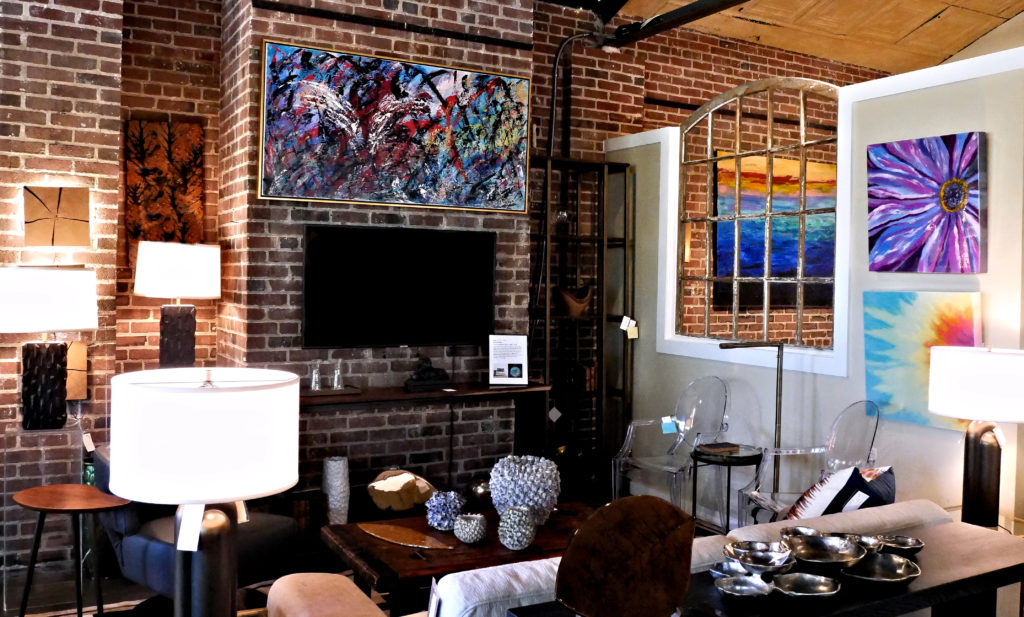
Tell us about the impact you made running a local theater.
Running a local theater was just an amazing experience. I did it for twelve years. We did something unusual because we had an outdoor venue and we worked with the town’s parks and recreation department. So, I was actually sponsored by the town. It was unusual because I was a theater company, but my producer was the town. That was good and bad. The great part about it is that because we were using parks and rec funds, we always knew were going to be funded and we always knew the people were behind us. The bad part is that city officials would change every two years. I would have one city manager and one town council that loved everything we did. Then the next city manager and next town council would think theater was stupid so I was constantly fighting to keep funding at a certain level.
I went a wedding one time and sat next to James Earl Jones and his wife. As you know, James is one of the best actors ever and he just thought our free theater for the people was the coolest thing he ever heard of. So that really validated all of that work because it was a lot of work. I certainly didn’t do it for money….ha ha.
As a community theater, we did The Wizard of Oz that had 110 people in the cast. That included like 42 little people that were kids playing Munchkins of course. We had the actual mayor of Lewisville playing the Mayor of Oz. Things like that. We were able to do amazing things outside. We had huge sets. We eventually got to the point where we had three or four thousand people a night. Just a whole sea of people because we did it for free. We were able to do something nobody had ever done because we were a community theater that was sponsored by the town which was unusual.
John Rushton was the President/Artistic Director of the West Side Civic Theater in Lewisville, NC from September 1999 through September 2011
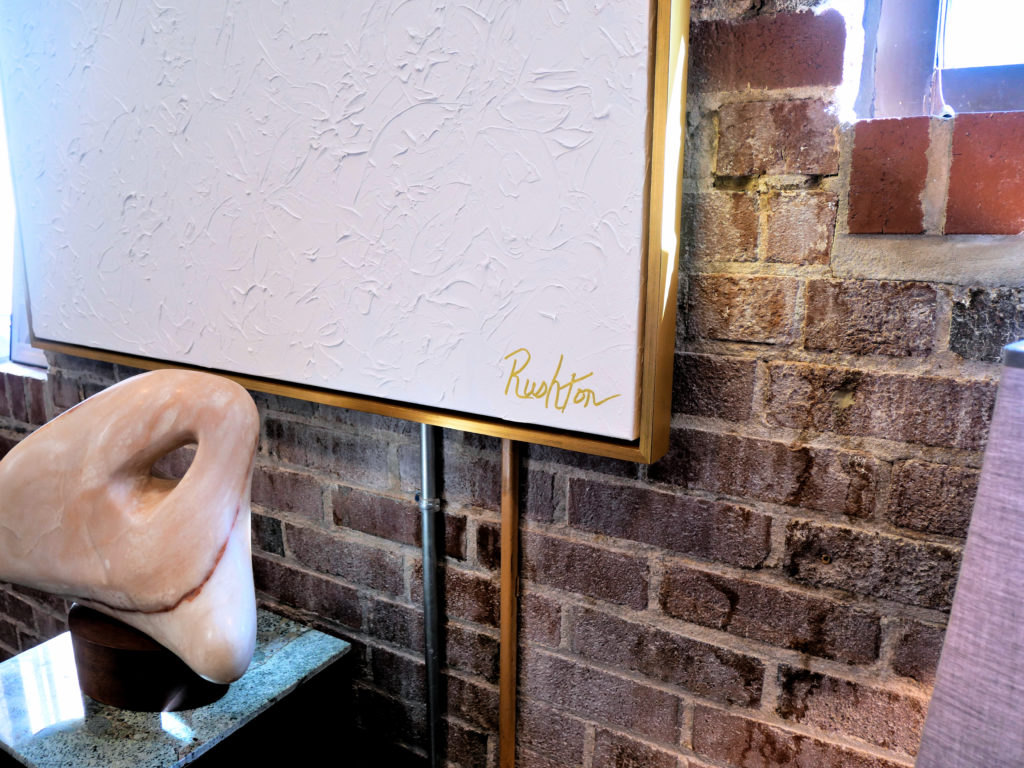
Where do think your work ethic comes from?
My mom. If my mother said she was going to do something, she did it right. She did everything she could to do it right at great sacrifice sometimes. I learned that from her. My dad was just more of a Marine. He would just yell at you and scare the hell out of you. It didn’t take him long. If he said don’t do something, you just didn’t do it because you’d be afraid he’d kill you. My mother would just be disappointed in you which was way worse than my dad screaming and yelling at you. Later in my mom’s life, she went back to school and got her master’s degree. I don’t know how she did it with kids and my dad and working full-time. I remember her sitting around the table at ten o’clock at night doing homework after she had been a nurse all day for twelve hours in the emergency room. My mom got into nursing because her best friend wanted to go to the University of Virginia to take the test to get into nursing. Her best friend talked her into going with her and her best friend didn’t make it. My mom passed and ended up going to the University of Virginia and eventually taught nursing for a while.
Where can people find you on social media?
On Facebook it’s just John S Rushton. On Instagram it’s @rushtonabstracts. You can also connect with me on my website at www.rushtonabstracts.com.
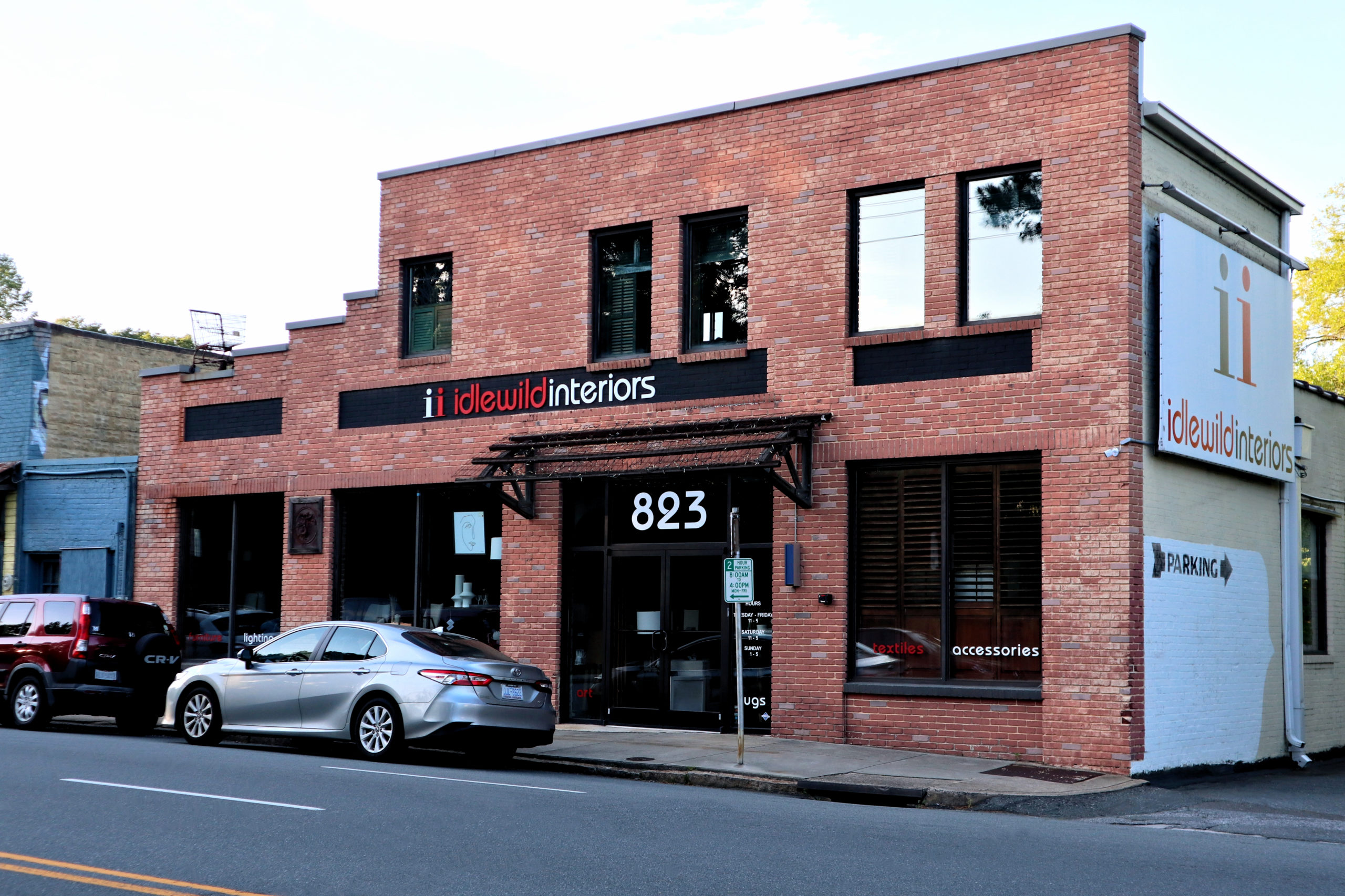
If you go back to the earliest communities on earth, the first thing they talk about is the art, the music, the cave drawings, whatever. The feelings that people got from the community whether or good or bad come out in the art.
– John Rushton
